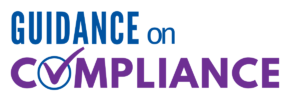F-Tag 550 covers several different segments of resident rights. When you think about responsibilities and focus areas for skilled nursing facility (SNF) staff, resident rights should be the first thing that comes to mind.
Let’s look at what is outlined in the different segments.
The resident has a right to a dignified existence, self-determination, and communication with and access to persons and services inside and outside the facility.
Caregivers in long-term care must keep the residents’ best interest in the forefront. This includes:
- assisting a resident with making their own choices and communicating those decisions clearly and effectively.
- assisting the resident with communication inside and outside of the facility by any means necessary.
- Mailing letters,
- Organizing video calls to talk with others (Skype, Facetime etc.),
- Planning Phone calls, and
- Providing a private space for the resident to visit with guests
A facility must treat each resident with respect and dignity and care for each resident in a manner and in an environment that promotes maintenance or enhancement of his or her quality of life, recognizing each resident’s individuality. The facility must protect and promote the rights of the resident.
When working within a SNF, exercising respect with residents is a must. Communicating allows residents to express how they want to be addressed, when they would like to be awakened, or what time is best to have meals, etc. Taking the time to address the needs of residents brings resident-centered care full circle.
The facility must provide equal access to quality care regardless of diagnosis, severity of condition, or payment source. A facility must establish and maintain identical policies and practices regarding transfer, discharge, and the provision of services under the State plan for all residents regardless of payment source.
Under no circumstance should a resident be treated differently based on medical condition, prognosis, or ability to pay for care. If there is a medical condition that the facility cannot handle, then it should be clearly outlined in the facility assessment. Admitting a resident with a condition the facility is neither staffed for, nor competent to care for is a violation of resident rights.
The resident has the right to exercise his or her rights as a resident of the facility and as a citizen or resident of the United States.
The facility must ensure that the resident can exercise his or her rights without interference, coercion, discrimination, or reprisal from the facility.
These two segments provide the resident with the capability to act within the facility as he or she would if living in the community. Residents should be made aware of their rights upon admission and throughout their stay. An excellent place to review resident rights is at resident meetings. Questions regarding this can be addressed by the facility representative who attends meetings when invited by the residents.
The resident has the right to be free of interference, coercion, discrimination, and reprisal from the facility in exercising his or her rights and to be supported by the facility in the exercise of his or her rights as required under this subpart.
If a resident exercises his or her rights, resistance from the facility is never an option. When a resident requires assistance in voicing concerns or exercising any other right, it is the responsibility of the facility to assist in that matter. This regulation is the basis of resident-centered care. Each resident should be able to be cared for on an individual basis, not part of a larger system approach.
Your facility can stay compliant by
- Providing a physical overview to the resident and family upon admission, and
- Prominently post the outline throughout the facility.
Staff education regarding resident rights is crucial
It is essential to continuously educate staff members on the importance of resident rights. If a facility has been cited in the past for a resident rights violation, it should use this as an educational opportunity for staff. When a facility receives a regulatory citation, there is a detailed explanation of the circumstances surrounding the citation. This should be used be used in training (keeping HIPAA compliance in mind) so that staff will understand the importance of the situation. Staff members should be given the list of resident rights upon hire and review them throughout the year, at either staff meetings or on an individual basis.
There have been 679 citations of F-Tag 550 since the implementation of the new survey process in November 2017. Out of the 679 violations, 7 were at a G or higher in scope and severity. While the number of G level scope and severity instances are relatively low, the overall number of deficiencies is relatively high given the significant nature of the deficiency.
Often, this regulation is related to another instance that has occurred during the survey such as affording privacy for personal care, lack of self-determination on decision making, lack of cleanliness, or if a resident is in a secured area without proper clinical documentation.

